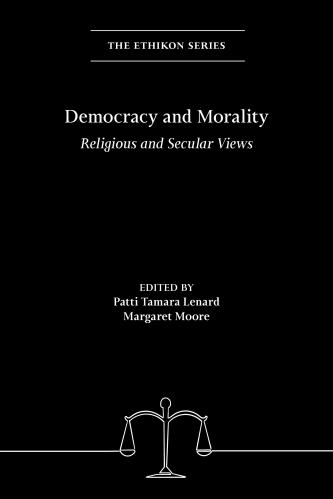If President Trump’s new “zero-tolerance” policy of separating immigrant children from their parents at the border was intended to pressure Democrats, it is backfiring badly—among Democrats, as expected, but among Republicans as well. Rupert Murdoch’s New York Post, whose editorial page consistently backs the president, wrote on Sunday that “It’s not just that this looks terrible in the eyes of the world. It is terrible.”
Led by House Speaker Paul Ryan, congressional Republicans have distanced themselves from this harsh policy. Attorney General Jeff Sessions’ claim that it is Biblically mandated has played poorly, even among evangelicals who up to now have given Mr. Trump their unswerving support. (The Rev. Franklin Graham, Billy Graham’s son and a staunch backer of the president, calls it “disgraceful.)”
The revolt has spread even to the White House. Speaking as “a mother, as a Catholic, as someone who’s got a conscience,” senior advisor Kellyanne Conway admitted on “Meet the Press” that “no one likes this policy.” First Lady Melania Trump, who is turning out to be much subtler than many people thought, issued a statement that “We need to be a country that follows all laws, but also one that governs with heart.”
Worse, almost no one accepts the president’s assertion that separating children from their parents is legally required. Said Sen. Lindsey Graham (R-SC), “President Trump could stop this policy with a telephone call. . . . If you don’t like families being separated, you can tell DHS, ‘Stop doing it.’” Rather it is the result of a “zero-tolerance” policy instituted by Attorney General Jeff Sessions which treats every person who crosses the border illegally as a criminal—even if they are asylum seekers.
This is just one more instance of how the White House hardline posture on immigration is out of step with the sentiments of the American people. Congressional Republicans haven’t been able to coalesce around an alternative to it.
Most recent public opinion polls on immigration reiterate years of prior findings. According to a Quinnipiac survey released last week, 76 percent of Americans support allowing undocumented immigrants who were brought to the United States as children to remain in the country and eventually apply for citizenship. This figure includes strong majorities of every group, including 60 percent of Republicans, 74 percent of Independents, and 71 percent of whites without college degrees—the core of the Trump coalition. These sentiments extend to illegal immigrants as a whole: 60 percent of Americans favor allowing them to stay and eventually apply for citizenship, compared to only 26 percent who believe they should be required to leave the United States.
Surveys show weak support for key pillars of President Trump’s agenda. Barely one-third of Americans support the president’s proposed wall along the southern border; only 17 percent believe that the level of legal immigration should be decreased; opinion on the “diversity lottery” is mixed and dependent on the way the question is posed. (There is near-majority support, however, for the administration’s proposal to shift the balance of legal immigration away from family reunification toward economic contribution.)
Most Americans disagree as well with the underpinnings of the president’s approach. Strong majorities reject the proposition that immigrants are taking jobs away from Americans and believe that immigrants are doing jobs that Americans don’t want to do. They regard immigrants as hard workers, not welfare dependents. Nor do they believe that immigrants are more likely than others to commit crimes. About 6 in 10 Americans say that immigration from diverse sources strengthens the United States and makes it a better place to live.
A Pew Research Center analysis shows why Republicans are having a hard time coming together on immigration policy. 80 percent of Democrats agree with the position taken by a majority of Americans overall—favoring legal status for immigrants who came to the U.S. illegally as children while opposing the expansion of the border wall with Mexico. By contrast, only 17 percent of Republicans hold both these views, while the rest are split among several other positions.
The evidence suggests, however, that both Democrats and Republicans would be willing to accept a package that combines legal status and a path to citizenship for the Dreamers with construction of the border wall. This is the deal that Senate Minority Leader Charles Schumer offered, and President Trump rejected, some months ago, to the dismay of many Republican strategists.
The president’s mercurial approach to immigration is compounding the difficulties Republican leaders face. After months of frustration, moderate House Republicans resorted to a rarely used tactic—the discharge petition—to bring a stand-alone solution for the Dreamers to the floor over the objections of their leadership. As signatories neared the required threshold, Speaker of the House Paul Ryan agreed to bring two bills up for a vote—legislation favored by Republican hardliners and a compromise bill acceptable to most party factions. The compromise was negotiated in part by White House aide Stephen Miller, himself an immigration hawk. But as it neared completion, President Trump announced that he would not sign it, throwing the process into disarray.
After nearly a day of confusion, White House spokesmen said that the president had meant to reject not the compromise bill, but rather the legislation favored by the backers of the discharge petition. But by then the damage was done, as conservatives who might reluctantly have supported the compromise feared that the president would pull the rug out from under them. In response, Republican leaders refused to confirm that votes on immigration options would go forward this week as scheduled. An inquiry to Speaker Ryan’s office on Monday morning yielded some new information: votes on the bills will occur on Wednesday or Thursday at the earliest.
If the whip count on Tuesday leads the Speaker to delay floor action once again, Republican moderates will likely return to the discharge petition strategy, which could produce a coalition between House Democrats and a minority of Republicans to pass an immigration bill opposed by a majority of Republicans. This is the outcome House Republicans have maneuvered to avoid ever since then-Speaker John Boehner refused to bring up the bipartisan Senate immigration bill for a vote in 2013.
Republican moderates have little choice but to force the issue. They believe—rightly, polls suggest—that their constituents will hold them responsible for failing to address the Dreamers’ plight. If conservatives do not relent, they may end up with a bill they detest—or with the loss of their party’s majority in the House.
This is Speaker Ryan’s moment of truth. If he cannot produce a compromise bill that enjoys President Trump’s unequivocal public support and bring it to the floor, he risks leaving endangered members of his majority defenseless against the wrath of their constituents. But to reach this compromise, he will have to persuade the Freedom Caucus and other hardliners to place the interests of their party ahead of ideology purity, which they have long refused to do. If Mr. Ryan fails, his legacy may well be the end of his party’s House majority.
A Quinnipiac survey released early Monday afternoon found that by a margin of 66 to 27 percent, voters oppose the policy of separating children from their parents when families illegally cross the border into the United States. Among Independents, only 24 percent favor the policy, while 68 percent oppose it. Among whites without college degrees, the heart of Mr. Trump’s coalition, support stands at only 37 percent, with 52 percent opposed. But underscoring the dilemma facing the White House and Republican congressional leaders, 55 percent of Republicans support the policy, the only group to do so.
The Brookings Institution is committed to quality, independence, and impact.
We are supported by a diverse array of funders. In line with our values and policies, each Brookings publication represents the sole views of its author(s).











Commentary
As Trump’s zero-tolerance immigration policy backfires, Republicans are in jeopardy
June 18, 2018